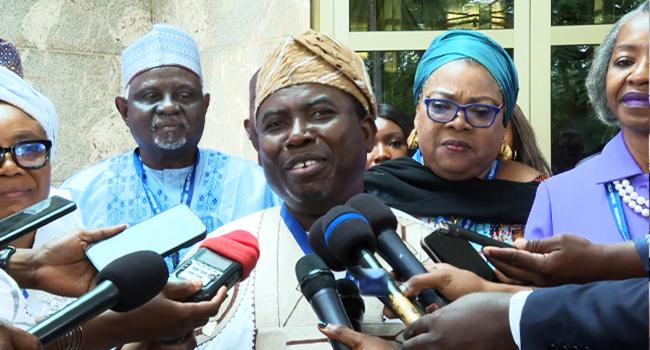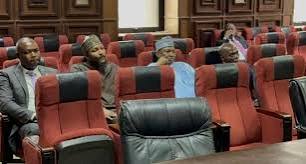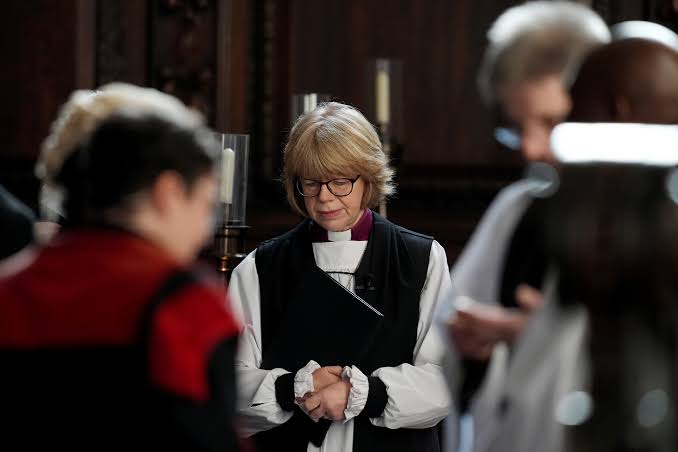The Court of Appeal, Abuja Division, on Monday, overturned the conviction of the Umar Danladi-led Code of Conduct Tribunal (CCT) that found a former Chief Justice of Nigeria (CJN), Justice Walter Onnoghen, guilty of false assets declaration.
The appellate court, in a judgement, discharged and acquitted Onnoghen of the conviction delivered against him by the CCT.
The conviction, which was delivered on April 18, 2019, was dismissed following the resolution of the issues that led to his trial and conviction.
Persecondnews recalls that former President Muhammadu Buhari had on January 25, 2019, about 29 days before the presidential election, suspended Onnoghen from office as the CJN and swore in the next most senior jurist of the Supreme Court, Justice Tanko Muhammad, to take over the leadership of the judiciary.
His suspension came barely eight hours after he announced his decision to inaugurate judges who would preside over election petition tribunals.
Buhari’s action elicited varied reactions from within and outside the judicial circles, with the Nigerian Bar Association (NBA) describing it as a coup against the judiciary.
In his judgment, Justice Abba Mohammed, who predicated the judgment on the terms of settlement by the Federal Government and Onnoghen, ordered that the four bank accounts previously ordered to be forfeited be returned to him.
The terms of the settlement read: “The appellant herein was charged at the Code of Conduct Tribunal (CCT) on six counts dated January 11, 2019, to which he pleaded not guilty.
“The tribunal, before the commencement of trial, heard and granted an ex-parte application seeking for an order for the appellant to step aside as the Chief Justice of Nigeria and Chairman of the National Judicial Council, and for the President to swear in the next most senior Justice of the Supreme Court as acting Chief Justice of Nigeria, thereby removing the appellant from office.
“The appellant before and during the trial raised objections challenging the jurisdiction of the Code of Conduct Tribunal (CCT), to hear and determine the matter same having not been brought by due process of the law, as the appellant being a judicial officer, ought to have been reported to the National Judicial Council first, whose findings and recommendations would determine the action(s) to be taken against him.
“The appellant also filed an application asking the chairman of the code of conduct tribunal to recuse himself from the proceedings because of the biased conduct he exhibited during the proceedings. The parties herein have expressed a collective desire to settle the appeals out of court.”
The statement added: “Pursuant to the above, it is hereby agreed by the parties as follows: That the respondent concedes the appeals in the following terms:
“That the three appeals namely: (1) CA/A/375c/2019 (2) CA/A/376c/2019 and (3) CA/A/377c/2019 be consolidated for the purpose of hearing and settlement herein.
“That in relation to appeal nos: CA/A/375c/2019 and CA/A/376c/2019, it is settled that the code of conduct tribunal lacks jurisdiction to try and convict the appellant (a judicial officer) without first resorting to the National Judicial Council (NJC) in accordance with the following decisions: FRN vs NGANJIWA (2022) 17 NWLR (Pt.1860) 407 @ 468; NGANJIWA vs FRN (2018) 4 NWLR (Pt.1609) 301; OPENE vs NJC (2011) LPELR-4795 (CA).
“Secondly, that the tribunal lacks jurisdiction to have tried and convicted the appellant even after the appellant had tendered his voluntary retirement letter and the same was accepted unconditionally by the President of the Federal Republic of Nigeria,” among others.
The court clarified that all parties involved mutually agreed upon and voluntarily entered into the settlement terms.






































Leave a comment